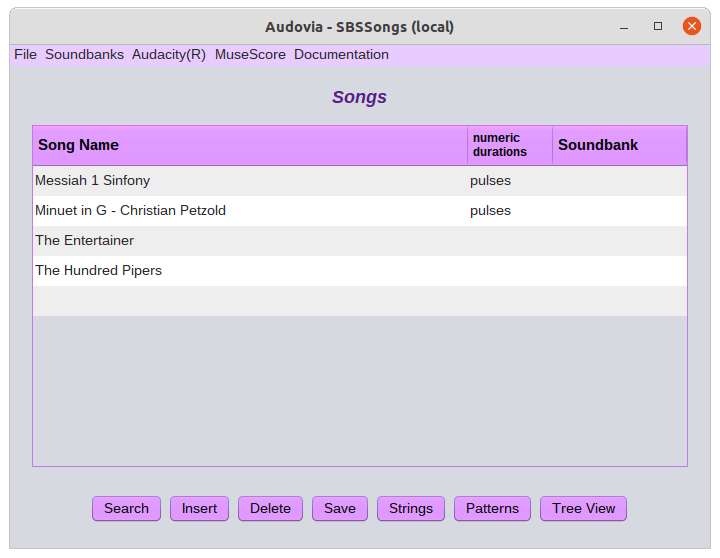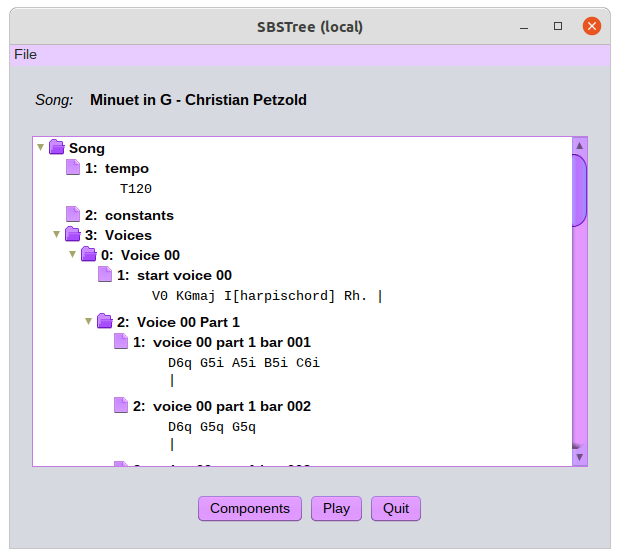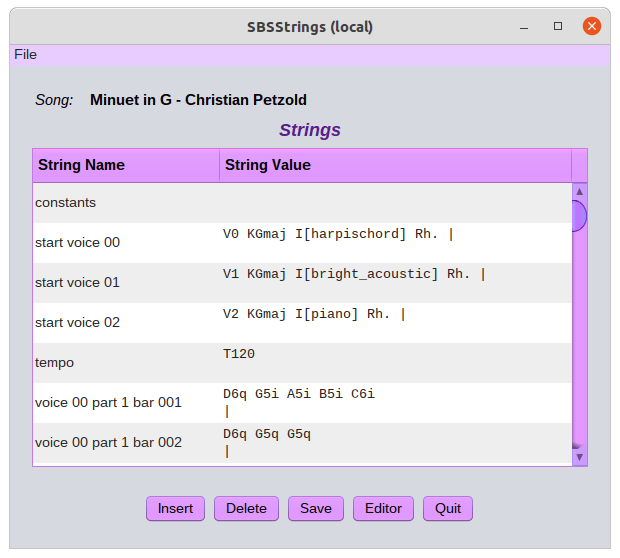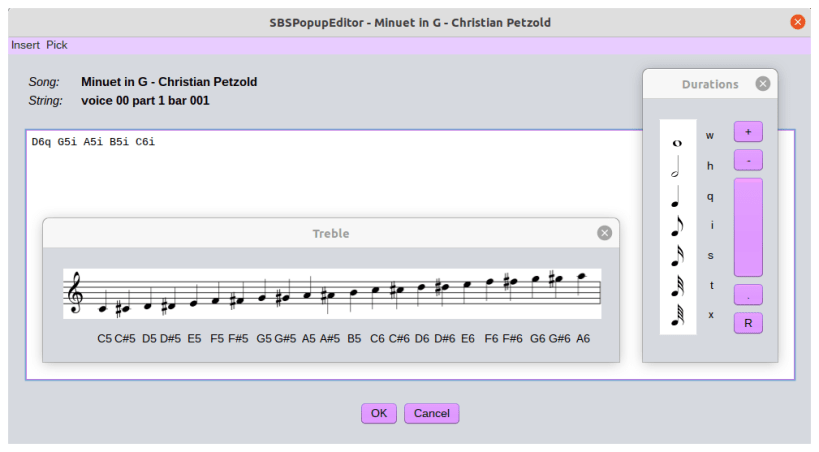




Make music on your laptop or PC with Audovia Lite. Songs can have up to 15 instrumental voices and a percussion track with instruments chosen from the default soundbank of 128 instruments or from any other soundbank of your choice. Songs can be developed, tested and edited very quickly and easily by virtue of the database structure and the JFugue MusicString notation.
Notes within a MusicString are specified by their name and octave or by their MIDI value and their durations are specified either by character code, or numerically. You can use notes from C0 to G10, corresponding to MIDI values 0 to 127. Middle C is C5.
The opening phrase of Joy to the World can be written as
C6h B5q. A5i G5h. F5q E5h D5h C5h.
Notes can be entered manually or by picking from graphic Treble, Alto, Tenor and Bass staves within the popup editor.
Within the application, use File/Template to create a song, then Tree View and expand the nodes. Select each bar in turn and enter the notes. Select "Song" and press Play to play back your music.
From the File menu, you can export to MIDI and WAV. The MIDI files can be opened in LMMS for music processing or in MuseScore for music publishing. The WAV files can be opened in Audacity, then exported to MP3.
You can share songs by exporting and importing songs in XML format. Use File/Song Import to import the demonstration songs.
The application can be run by typing audovia-lite at the terminal or by using the desktop shortcut in /snap/audovia-lite/current/.
For a quick start you can use File/Song Import and open the Demo folder, then select a song and Import Song. Then, from Tree View, select "Song", press Play, then Default Soundbank.
To hear some sample songs please visit our project website.
You are about to open
Do you wish to proceed?
Thank you for your report. Information you provided will help us investigate further.
There was an error while sending your report. Please try again later.
Snaps are applications packaged with all their dependencies to run on all popular Linux distributions from a single build. They update automatically and roll back gracefully.
Snaps are discoverable and installable from the Snap Store, an app store with an audience of millions.

Snapd can be installed from Manjaro’s Add/Remove Software application (Pamac), found in the launch menu. From the application, search for snapd, select the result, and click Apply.
Alternatively, snapd can be installed from the command line:
sudo pacman -S snapd
Once installed, the systemd unit that manages the main snap communication socket needs to be enabled:
sudo systemctl enable --now snapd.socket
To enable classic snap support, enter the following to create a symbolic link between /var/lib/snapd/snap and /snap:
sudo ln -s /var/lib/snapd/snap /snap
Either log out and back in again, or restart your system, to ensure snap’s paths are updated correctly.
To install Audovia Lite, simply use the following command:
sudo snap install audovia-lite
Browse and find snaps from the convenience of your desktop using the snap store snap.

Interested to find out more about snaps? Want to publish your own application? Visit snapcraft.io now.